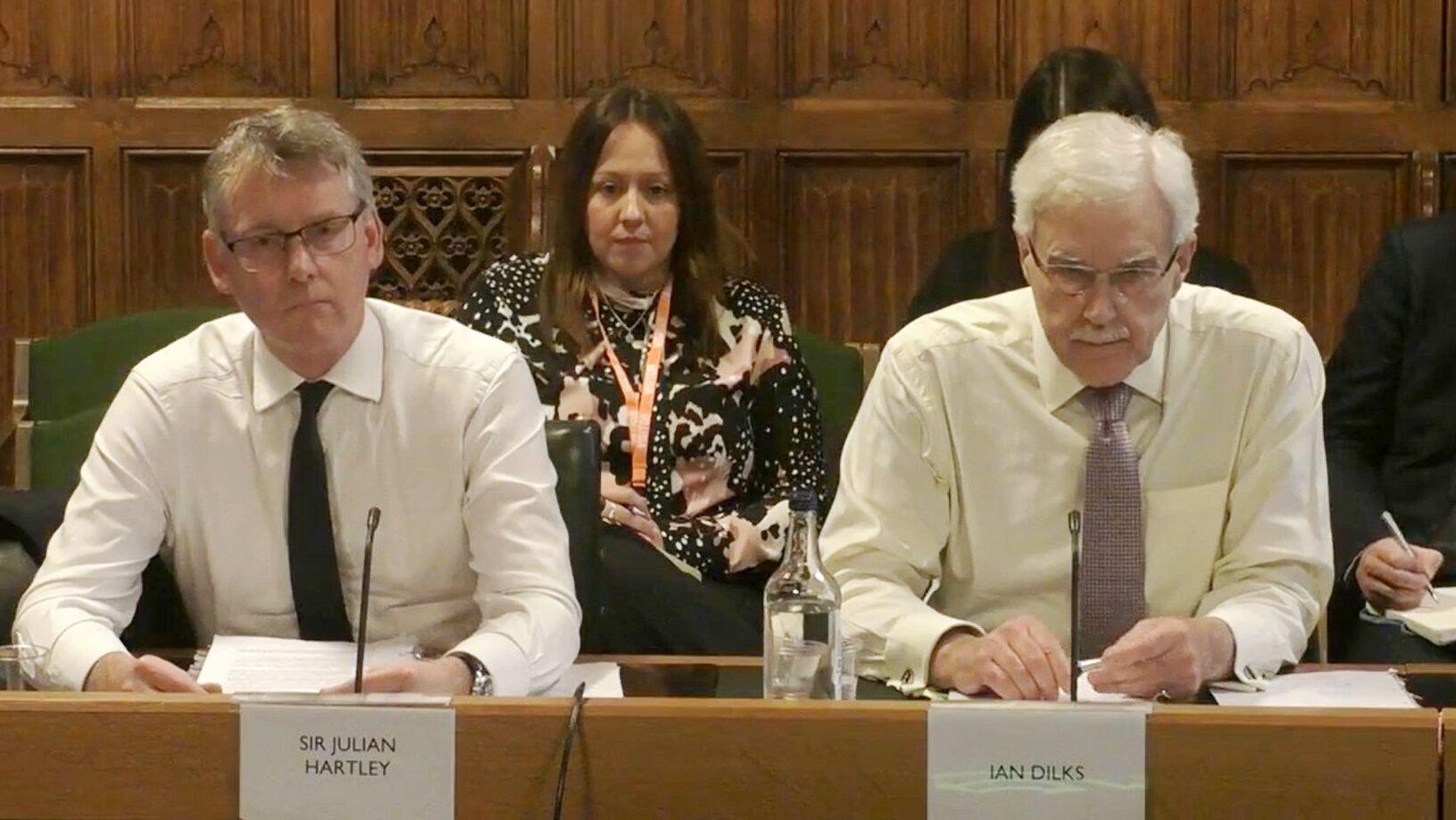Regulating the managers: more questions than answers
The Labour government’s plans for regulating NHS managers are still shrouded in mystery, and the three options on the table each have their pros and cons. Rhys McKenzie weighs up the choices and gauges the views of MiP members on the best way forward.

Ever since the then shadow health secretary Wes Streeting announced in 2023 that the Labour Party would seek to regulate NHS managers if in power, managers have waited patiently for the party and now the government to show their hand.
While there wasn’t much opposition to the principle of regulating managers, questions were asked about the aims of the policy. Was it about professionalising a skilled element of the NHS workforce, bringing them in line with their clinical colleagues? Was it about rebuilding public confidence in managers after years of being derided by politicians? Or was it simply a political move to give the perception that ministers would be ‘tough on managers’?
A year and a half later, MiP are still unsure what the government hopes to achieve by regulating managers — a view reflected throughout the health system. But we do now at least have some idea about what regulatory models are being considered by ministers.
The Department for Health and Social Care (DHSC) has sought views on three different methods of regulating NHS managers in England: a statutory barring scheme, a voluntary register and full statutory regulation. Each model will impact managers differently, and comes with its own potential risks and benefits.
MiP asked our members for their views on each regulatory model and on regulation more generally. The 790 responses to this consultation have heavily informed our response to the government. Here are the key themes of our evidence.
Support in principle — but what’s regulation for?
A majority of MiP members support the principle of regulating managers and that support has grown since November 2023, when we first asked for views on regulation. Over four in five MiP members also feel there’s a need to improve management behaviours, culture and standards.
-

How would statutory barring work?
With a statutory barring system, the regulating authority maintains a list of people who have been found unsuitable to practise a particular profession, such as NHS management. >> READ MORE
Opinion is split on whether regulation would help here. Around half of our members see regulation as a way to raise these standards, by increasing accountability and promoting ethical leadership. The other half are not convinced and, while some may still support regulation, they don’t necessarily see it as the way to improve standards.
The government has stated its ‘overarching aim’ for regulating NHS managers is ‘ensuring patient safety’, but two-thirds of our members are not convinced that regulation would lead to a safer NHS.
Members who don’t support regulation highlight the potential bureaucratic burden it will put on managers, costs to the individual and the taxpayer, and the potential impact on recruitment and retention as reasons to tread carefully.
‘Chilling effect’
MiP members warn of the potential ‘chilling effect’ a poorly implemented system of regulation could have, with around a quarter of respondents saying regulation would make them more likely to leave the NHS. Over a third also said it would make them less likely to seek promotion to more senior roles, potentially making recruitment to already hard-to-fill vacancies even more challenging.
Concerns were also raised that regulation could affect ethnic minorities disproportionately and heighten the risk of bias and discrimination.
For regulation to work, our members said there was a need for training and support, continuous professional development, and a fair and inclusive regulatory process.
MiP members are also clear that any new regulatory model must be truly independent to be effective. Our members are not satisfied that an existing organisation, such as the CQC or NHS England, could regulate fairly or independently. Only one in five members believed an existing body could fulfil the role, with the vast majority believing a new body is needed — a view that MiP shares.
No outstanding candidate
MiP members were split on which of the three regulatory models put forward by government would work best. Due to the lack of clarity on what the government hopes to achieve with regulation, it’s difficult to determine the most effective and proportionate regulatory model.
In our survey, there was a very slim preference for the statutory barring system, with just over half of our members believing it would be effective. A statutory barring mechanism would also be the most fair, proportionate and independent model of the three proposed by government, according to respondents, although only half had confidence in this.
Interestingly, there was more support for full blown statutory regulation than a voluntary register. While members acknowledged that a voluntary register would be simpler to implement, they were not convinced it would be effective. Those in favour of a professional register felt making it a statutory requirement made more sense, as it would bring managers in line with clinical colleagues and would do more to professionalise management than a voluntary register.
Start at the top and work down
MiP members believe that whatever form of regulation is introduced it should apply to staff working in all NHS organisations including arm’s-length-bodies as well as CQC-registered organisations, social care providers and private companies delivering NHS services.
-

How would a professional register work?
A professional register is a list of individuals who have demonstrated the relevant skills and competencies to practise a certain profession.
For regulation to be fair it must be consistently applied throughout the system. MiP thinks it would be unwise to create a two-tiered system, where managers in certain organisations are regulated while others are not. Practically, this could prevent talent moving between different healthcare organisations due to differences in regulatory requirements.
There was agreement that regulation should apply to senior leaders, including chairs, non-executive directors and senior managers in strategic roles. Many of our members also made the case that, if regulation was about professionalising managers, it should be extended down to mid-level managers — roughly those on Agenda for Change Band 8A and above. Some suggested it should apply to all NHS staff with any management responsibilities, regardless of their grade.
While extending the regulatory framework beyond senior leaders would be desirable for professionalisation, MiP is concerned about the additional burden it could place on other managers at this time. As the government’s intentions are not entirely clear, we would urge caution on extending the scope too far — at least initially, until we learn more about the scheme and how it will work.
A phased approach
MiP members are also clear that any new regulatory model must be phased in. It’s important to get this right and a phased approach, with extensive review and assessment periods, will give regulation the best chance of succeeding. This should involve introducing the regulatory framework for the most senior managers first, reviewing its implementation and extending it downwards if appropriate.
Managers should be held accountable, but they must be held to account for the decisions they actually take or influence. Once regulation is introduced it will be extremely difficult to roll back — for better or worse. By starting small and extending it when we are clear about what behaviours and competencies we are regulating against, managers will have more confidence that the system works.
Duty of candour
Alongside professional regulation, the government is also considering strengthening the legal duties of candour for individual NHS leaders. This may involve holding NHS leaders personally accountable for ensuring the existing statutory duty of candour for NHS organisations is correctly followed, as well as leaders having further duties to respond, record and consider any concerns raised about patient safety.
MiP and our members believe these duties should be extended. It is already an expectation of senior NHS leaders and formalising this position would offer greater clarity.
MiP’s position
On the options put forward by government, MiP believe that a statutory barring system for the most senior managers would make a good starting point. This would be the least intrusive form of regulation and easiest to get off the ground.
Full statutory regulation would be more costly, both to the taxpayer and the individual, and consideration would have to be given to how managers demonstrate their competence. This would likely have to be done through a formal qualification. Introducing a qualification which captures the breadth of management roles seems technically unfeasible — at least in the short term. We also need to consider how much time and money can realistically be released to retrain potentially tens of thousands of managers in the coming years. MiP does not think this would be the best use of already-stretched resources.
MiP also has concerns that formal training requirements may unintentionally create an artificial barrier to entry. NHS managers come from all walks of life and this diversity is a strength. Formal qualifications could make it much harder for staff from under-represented and disadvantaged backgrounds to make their career in the NHS. We want to encourage people from all backgrounds to apply their skills in NHS management roles. Formal qualification requirements may have the opposite effect.
MiP members, however, are more supportive of the idea. If qualifications are properly funded and additional resources are put into training managers and supporting their professional development, then our members would be more supportive of formal management qualifications. We don’t think it should be off the table, but we don’t believe the government should be starting from here.
While a barring system would only have a limited effect on professionalising managers, it could provide a good platform to build from, ensuring any further moved to regulate and professionalise — such as formal qualifications or a professional register — would be more likely to succeed.
MiP supports efforts to professionalise managers through better training, support and ongoing professional development. This would not only raise standards, it would recognise NHS management as a skilled profession and help improve public attitudes to non-clinical leaders.
However, the way the government has framed regulation still makes it seem more like a punishment than a vehicle for support and development. Once there is a clearer picture on how regulation will be taken forward, MiP hopes the government will understand the importance of framing it in a positive light with a genuine view to raising the standards of a skilled profession.
Looking ahead, we now need to think about how professional standards for NHS managers could be set and reviewed and how any regulatory framework would be evaluated, modified and extended. MiP believes that the government should ensure that standard setting and the regulatory framework are reviewed independently. In line with the practice of other healthcare professional regulators, standard setting should involve representatives of managers, employers and the public. The timetable and criteria for reviewing the regulatory framework should also be published when regulation is introduced.
MiP will keep members updated on the government’s plans to introduce management regulation as it progresses. Settle in – it seems this story still has a long way to run. //
- Rhys McKenzie is MiP’s communications officer. To give MiP your views on this issue email: info@miphealth.org.uk.
“Registration means care home managers are in a respected position”

The Care Quality Commission (CQC) already operates a statutory professional registration scheme for care home managers. All care homes, whether they’re run by private companies, charities or local authorities, must have at least one registered manager.
To register, would-be care home managers must show the CQC that they are of “good character” and are “able to properly perform tasks that are intrinsic to their role”. There are no set requirements for formal qualifications, but managers must demonstrate that they have the “qualifications, competence, skills and experience” to do the job.
After a career as an NHS manager, MiP National Committee member Sarah Carter now manages a 50-bed care home in the east of England. Her registration process lasted several months and involved an enhanced DBS check, verification of her experience and references and a “fit and proper person” interview with the CQC.
“They check everything, right back to your very first job when you were 16,” she says. “They look at your relevant qualifications and experience and whether you’ve worked with the CQC before. They want to get a whole picture of you.”
While professional registration for NHS managers “shouldn’t be looked at lightly,” Sarah explains, it does offer one big advantage. “As a registered manager, it doesn’t matter whether you’re clinically registered or not… Registered care home managers are in a respected position because of the hoops you have to jump through to prove you’re a fit and proper person to do the job,” she says. | CR
Related Stories
-

The inspector falls: why the CQC needs a fresh start
After years of chaos, the Care Quality Commission urgently needs to rebuild trust and credibility with the public and the services it regulates. What needs to change and what are the priorities for new boss Sir Julian Hartley? Alison Moore reports.
-

Voice, value and vision: what analysts need from the NHS
Data analysts play a vital role in an NHS which is increasingly data-driven and focused on public health trends. But the NHS faces fierce competition for skilled analysts and many feel the health service fails to value them or fully use their talents. Alison Moore reports.
-

It ain’t what you do, it’s the way that you do it
The government’s upcoming ten year plan will try yet again to shift the NHS towards community, digital and prevention. The big question is how, writes Craig Ryan. Try honesty, patience, focusing on what matters and empowering staff and local managers—that’s what gets results.
Latest News
-

MiP responds to the abolition of NHS England
Government risk repeating same mistakes as Lansley by abolishing NHS England and cutting more staff from ICBs, says MiP.
-

NHS England and central staff could be cut by 50%, NHSE has announced
Government planned cuts at NHS England go much further than previously announced, with up to 50% of staff at risk.
-

New MiP survey shows growing support for principle of regulating managers, but warns it won’t improve patient safety
MiP’s member survey on regulating NHS managers shows managers are still not convinced regulation will improve patient safety or raise standards, despite growing support for it in principle.